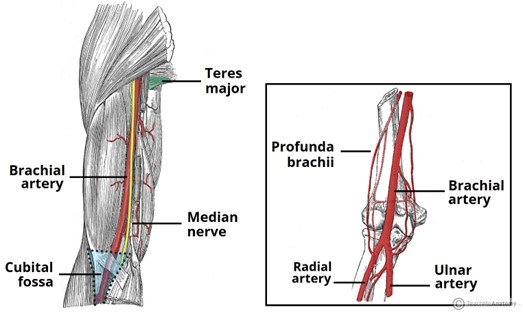A nurse is providing discharge teaching to a client who is in the first trimester of pregnancy and has chronic nausea. Which of the following statements by the client indicates an understanding of the teaching?
“I will include a high-fat food with each meal.”
“I will drink 12 ounces of water with breakfast.”
“I will eat a high-carbohydrate diet.”
“I will lie down for an hour after eating.”
The Correct Answer is C
Choice A reason: Including a high-fat food with each meal is not a good strategy for managing chronic nausea during pregnancy because it can delay gastric emptying and worsen nausea and vomiting. High-fat foods should be avoided or consumed in moderation during pregnancy.
Choice B reason: Drinking 12 ounces of water with breakfast is not a good strategy for managing chronic nausea during pregnancy because it can dilute stomach acid and trigger nausea and vomiting. Water should be consumed between meals rather than with meals during pregnancy.
Choice C reason: Eating a high-carbohydrate diet is a good strategy for managing chronic nausea during pregnancy because it can provide quick energy and prevent hypoglycemia, which can cause nausea and vomiting. Carbohydrate-rich foods, such as crackers, toast, rice, and cereal, can also absorb stomach acid and reduce nausea and vomiting.
Choice D reason: Lying down for an hour after eating is not a good strategy for managing chronic nausea during pregnancy because it can cause acid reflux and worsen nausea and vomiting. It is better to sit upright or walk for a few minutes after eating during pregnancy.
Nursing Test Bank
Naxlex Comprehensive Predictor Exams
Related Questions
Correct Answer is C
Explanation
Choice A reason: Using an electronic device is not a reliable method for measuring blood pressure because it may give inaccurate readings due to movement, noise, or battery issues. An electronic device should be calibrated regularly and compared with a manual device.
Choice B reason: Inflating the cuff to 140/90 mmHg is not a correct procedure for measuring blood pressure because it may cause discomfort and false readings. The cuff should be inflated to about 20 to 30 mmHg above the expected systolic pressure or until the pulse disappears.
Choice C reason: Placing the cuff on the upper arm is a correct procedure for measuring blood pressure because it ensures that the cuff is at the same level as the heart and that the brachial artery is compressed. The cuff should be snug and fit around 80% of the arm circumference.
Choice D reason: Measuring blood pressure after exercise is not a good time for measuring blood pressure because it may reflect a temporary increase due to physical activity. Blood pressure should be measured after resting for at least 5 minutes in a quiet and comfortable environment.

Correct Answer is C
Explanation
Choice A reason: Dilute formula with 1 tablespoon of water is not a correct instruction for GER. Diluting formula can reduce the nutritional value and increase the volume of the feedings, which can worsen GER symptoms and cause dehydration and malnutrition.
Choice B reason: Place the newborn in a side-lying position if vomiting is not a correct instruction for GER. This position can increase the risk of aspiration, which is the inhalation of vomit into the lungs. Aspiration can cause pneumonia, respiratory distress, and death.
Choice C reason: Position the newborn at a 20-degree angle after feeding is a correct instruction for GER. This position can help prevent reflux by using gravity to keep the stomach contents down. The newborn should be kept upright for at least 30 minutes after each feeding.
Choice D reason: Provide a small feeding just before bedtime is not a correct instruction for GER. This can increase the likelihood of reflux during sleep, as the stomach will be full and prone to regurgitation. The last feeding should be given at least 2 to 3 hours before bedtime.
Whether you are a student looking to ace your exams or a practicing nurse seeking to enhance your expertise , our nursing education contents will empower you with the confidence and competence to make a difference in the lives of patients and become a respected leader in the healthcare field.
Visit Naxlex, invest in your future and unlock endless possibilities with our unparalleled nursing education contents today
Report Wrong Answer on the Current Question
Do you disagree with the answer? If yes, what is your expected answer? Explain.
Kindly be descriptive with the issue you are facing.
